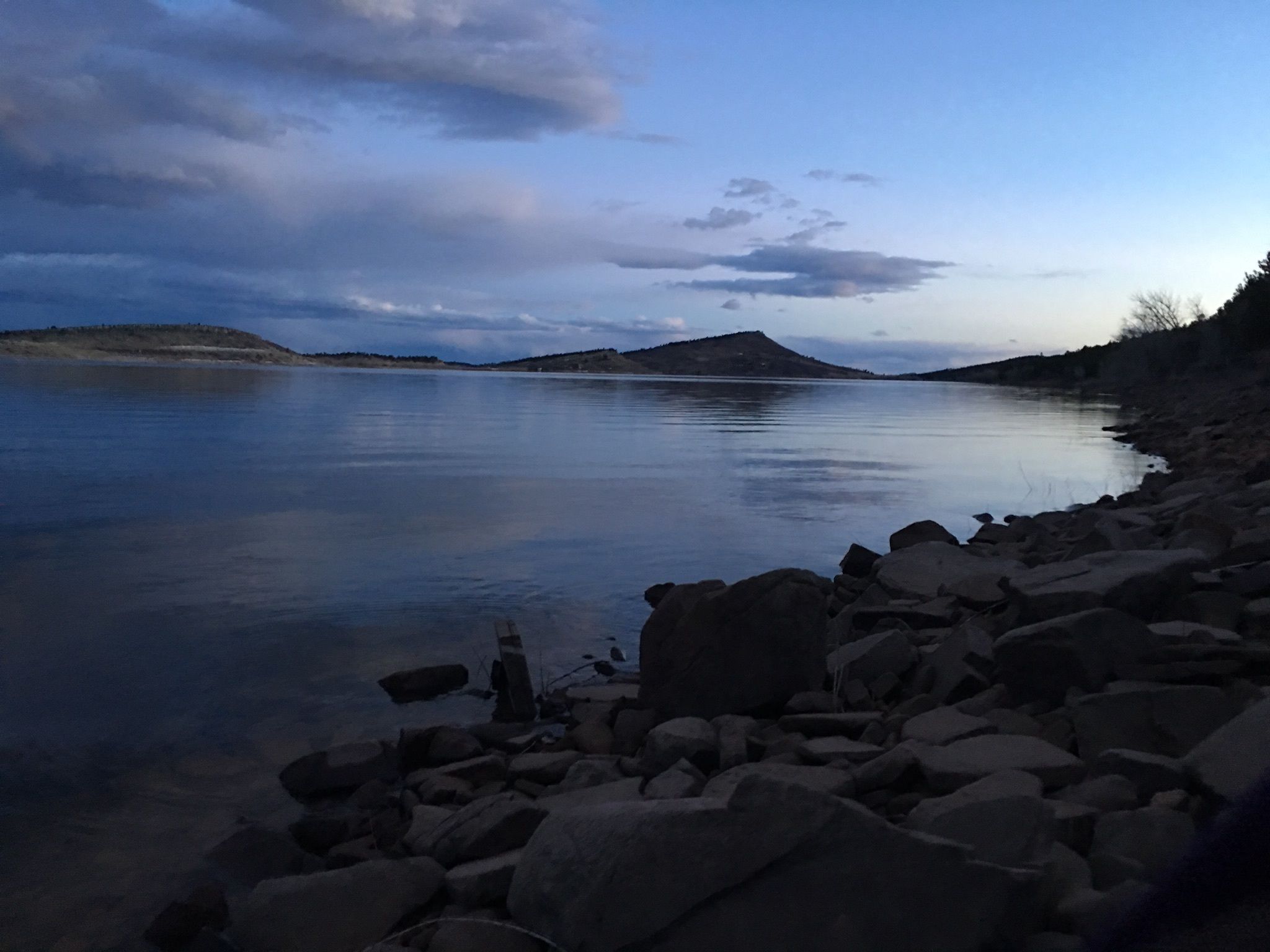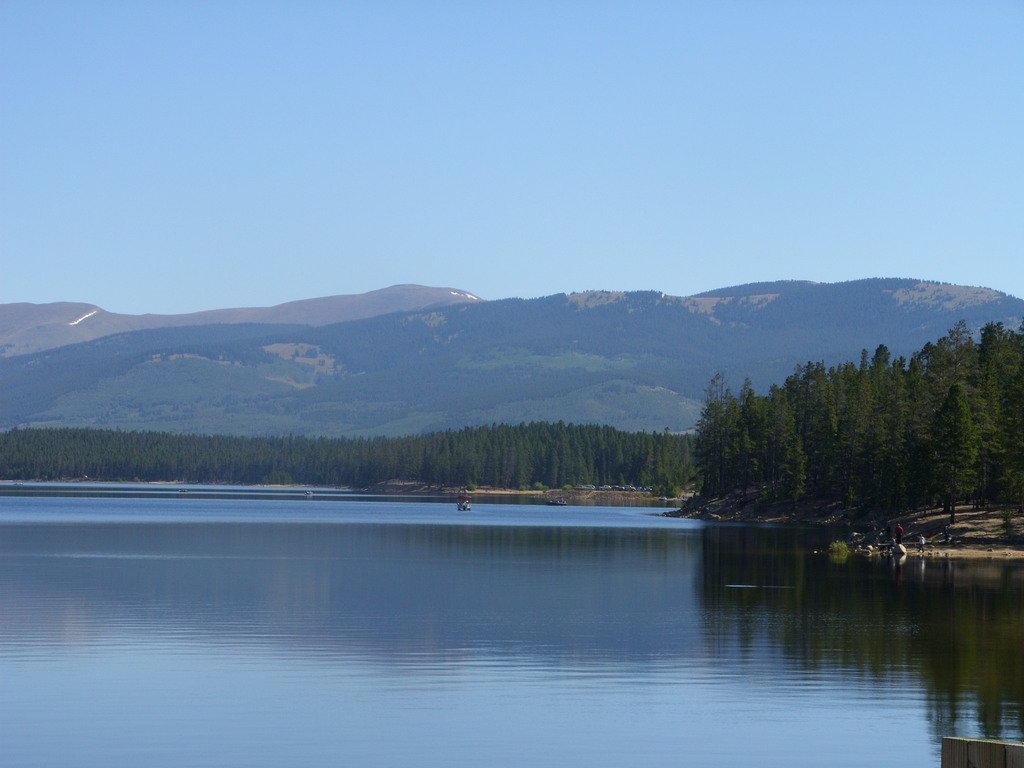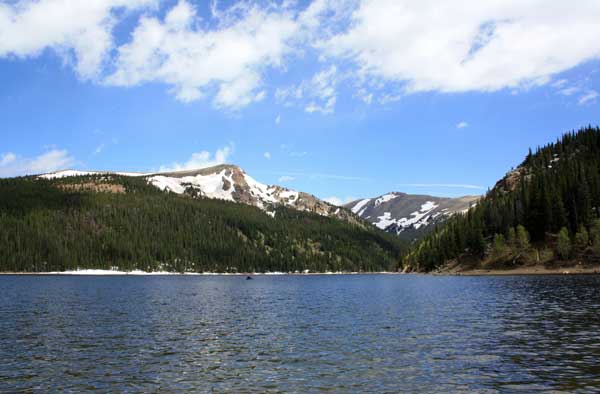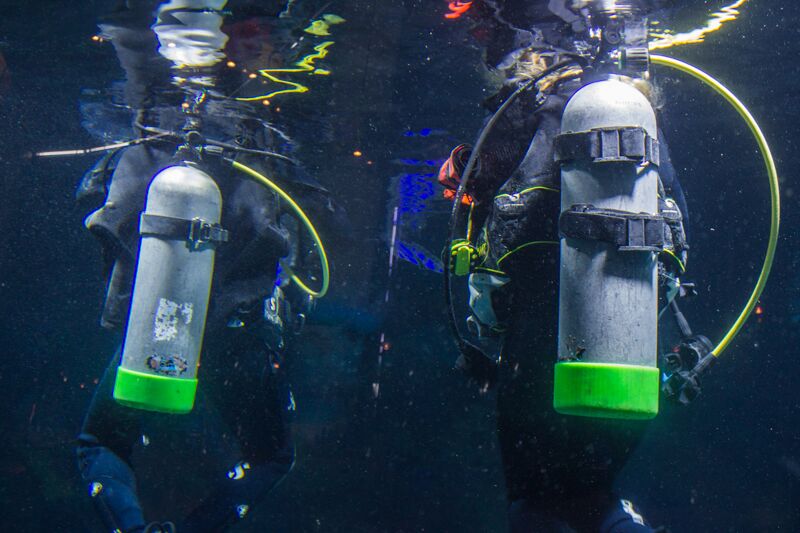While Colorado may be stuck surrounded by land, the Centennial state actually has the second most scuba divers of any state without a coastline, and ranks sixth in the country. Lucky for us land-locked lovers, there are plenty of water escapes to explore below the surface.
6. Carter Lake

Colorado diving is all about high elevation and freshwater. High elevation diving can be an adventure in itself, while cold dives and low visibility can challenge even experienced divers. Carter Lake is a standard Colorado dive, with an elevation just over 6,000 feet, but is open all year for diving in the Cove. Visibility is around seven feet, but divers can see Kokanee Salmon and trout—assuming they get within seven feet of you. A short two-hour drive will get you to this Colorado dive spot.
5. Chatfield Reservoir

Chatfield Reservoir is a more typical Colorado dive with low visibility and temperature. Chatfield is used frequently for training at the gravel bed pond. Here, you’ll find a sunken boat, washing machine and a toilet. The main lake is open for diving as long as a flag is displayed, but the boat traffic can be hazardous to divers, so be wary.
4. Blue Mesa Reservoir

Next on the list is Blue Mesa Reservoir. With 14 miles of surface area, this is Colorado’s largest body of water with plenty to explore. Hit this SCUBA spot between May and September for the best diving, but if you want more of an adventure that is so Colorado, try ice diving at 7,000 feet of elevation in January and February. Visibility between 10 and 25 feet (best in Winter) allows divers to see the submerged remnants of old towns including a road and bridges.
3. Turquoise Lake

Turquoise Lake is another great freshwater dive with depths of 20 to 100 feet and visibility around 20 feet. Turquoise Lake is just outside of Leadville, Colorado—about a two-hour drive outside of Denver, which can make for a day-dive trip. 1,780 acres of cold mountain water fill Turquoise Lake, and make it a great domestic dive.
2. Jefferson Lake

Hands-down the best freshwater dive Colorado has to offer is Jefferson lake. 10,000 feet above sea level, cool and clear mountain water offers visibility of 20 feet, and on good days around 40 feet—a rarity in Colorado. The lake is popular for fishers too, so be wary of hooks to not get fished yourself. The water is cold year round so a dry suit is recommended, but if you’re immune to the cold a 7 mm suit might be fine in the summer months.
1. Denver Aquarium

To really experience the sea without taking a trip to the coast, dive at the Denver Aquarium. Divers can up their open water certification level to an Adventure Diver with the PADI Adventure diver course. Divers swim with Moray Eels, Rays and Giant Groupers, and dive in the shark tank with Sandbar sharks, 12-foot Sawfish and 10-foot Sand Tiger sharks—talk about adrenaline. Divers of any certification level can dive with the fish, which includes swimming with a 400 pound Queensland Grouper and moray eels, dive with the sharks in the shark tank, take an underwater photography course and more through A-1 SCUBA and Travel.






Want about Aurora Res and a Piper plane at 35 ft .it’s like Chatfield without the boat traffic
Thanks for the suggestion! We will check it out.
you forgot about POOLS
sorry my jokes are bad, but it’s still fun to scuba in a pool
I’ve been told Gross Reservoir is good… have you tried it?